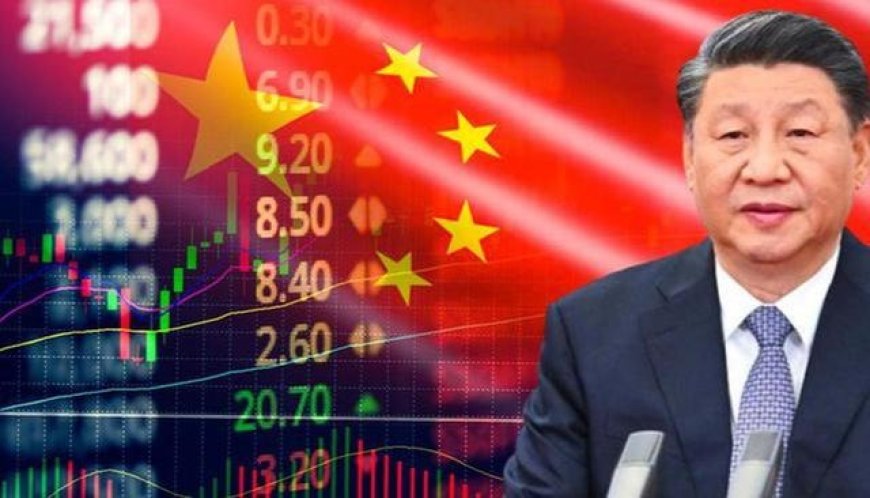World Bank Maintains China's 2023 Growth Forecast, Adjusts 2024 Outlook Due to Property Sector Weakness
World Bank sustains 2023 growth projection for China at 5.1% but revises 2024 outlook to 4.4% due to property sector concerns. Learn more in this update.

Key Highlights:
-
The World Bank maintains China's 2023 economic growth forecast at 5.1% while revising down 2024 outlook to 4.4% due to property sector concerns.
-
East Asia and the Pacific region, including China, see a slight adjustment in the 2023 GDP growth forecast to 5.0% from the prior estimate of 5.1%.
-
For 2024, the regional growth outlook lowered to 4.5% from 4.8%, citing factors like a sluggish global economy, high interest rates, and trade protectionism.
-
World Bank raises alarm over a significant surge in global trade restrictions, with almost 3,000 new constraints imposed in 2022 alone.
-
Despite challenges, China's economy shows signs of stabilization, with factory activity expanding for the first time in six months in September, according to an official survey.
In a recent report, the World Bank sheds light on China's economic trajectory. According to their assessment, China's economic growth for 2023 remains steady at 5.1%. However, there's a slight adjustment for 2024, with the forecast revised down from 4.8% to 4.4%. This modification is attributed to ongoing challenges in China's property sector.
The World Bank's semi-annual update encompasses East Asia and the Pacific, including China. Here, the growth projection for 2023 has been slightly revised down to 5.0% from the previous estimate of 5.1%.
Turning to 2024, the bank's revised projection for the region is 4.5% growth, down from the earlier estimate of 4.8%. This adjustment is influenced by external factors like a sluggish global economy, heightened interest rates, and trade protectionism.
A noteworthy concern highlighted by the World Bank is the substantial increase in trade restrictions. In 2022 alone, almost 3,000 new restrictions were imposed on global trade, a threefold increase from 2019.
Analyzing China's economic landscape, the initial post-reopening rebound, following three years of stringent zero-COVID policies, has lost some steam. The country is grappling with heightened debt levels and weaknesses in its property sector, both of which are exerting downward pressure on growth.
Despite these challenges, there are positive signs. An official survey revealed that China's factory activity expanded for the first time in six months in September.
To meet the government's growth target of around 5% for this year, analysts suggest additional policy support will be crucial.
The World Bank recommends implementing stronger structural reforms, including further liberalization of the "hukou" residence permit system, establishing robust social safety nets, and enhancing regulatory predictability for investments in innovative and green products. These measures, it suggests, could reignite consumption and investment, forming the basis for sustainable growth.
The economic landscape in China has sparked a division among government advisors on the best way forward. The pro-reform camp advocates for accelerated structural reforms, such as relaxing the hukou system and removing market entry barriers for private firms, even if it means challenging state-owned giants.
Also Read: China's Empty Homes Dilemma: More Houses than Occupants, Says Former Official
































































